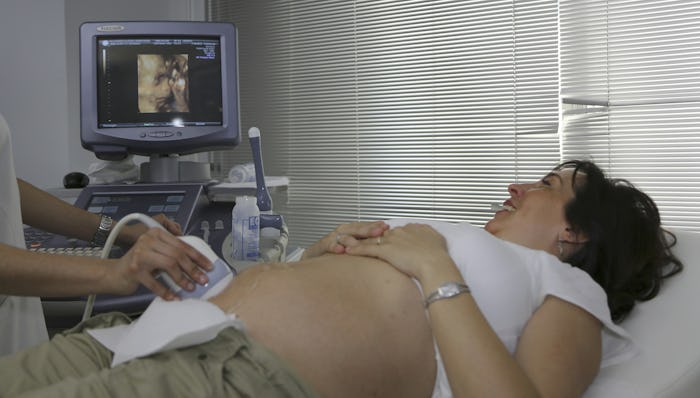The 20 week ultrasound is one of the most anticipated events of most women's pregnancies — besides actually meeting your baby, of course — and it's no secret why. Ultrasounds can be equal parts exciting and terrifying as you get an actual glimpse of the small human growing inside you. For many women, it solidifies the feeling that yes, this is happening, since before 20 weeks you may not feel much from the baby other than a queasy feeling. But what can you learn from the 20 week ultrasound exactly? Like most aspects of pregnancy, the outcome is different for every mom, but the basics of the ultrasound are generally the same for everyone.
According to Parents, the 20 week ultrasound is a routine procedure that has been common among OB-GYN's for years. And although it doesn't change the outcome, (whether your baby is completely healthy or not) it is still wise to schedule one in most cases.
At the ultrasound, the technician will perform an detailed "anatomy scan," which means they'll check all of your baby's organs (which are still forming), extremities, and physical features to make sure everything is working properly. The same Parents article stated that checking the baby's heart, spinal cord and other organs at 20 weeks is much more effective, as they can be seen much more clearly now that your baby is more developed.
Baby Center noted that the sonographer will also check the placement of the placenta in your uterus, making sure it is functioning properly at its job of providing oxygen and nutrients and removing waste from your baby's blood stream, according to the Mayo Clinic.
Finally — and probably most exciting to you — the technician will also be able to tell your child's gender, meaning you can finally narrow down that baby name list.
This ultrasound can also be a bit frightening, especially if the technician suspects an abnormality with your baby. Though rare, the 20 week ultrasound is when most parents discover birth defects, heart or neural issues, or other diseases. While there oftentimes isn't much doctors can do to change anything, it can help to be prepared.
Fortunately, most parents exit their ultrasound with happy news and full of excitement to meet their healthy little one. And well equipped with plenty of ultrasound photos to tide them over until the big day.
